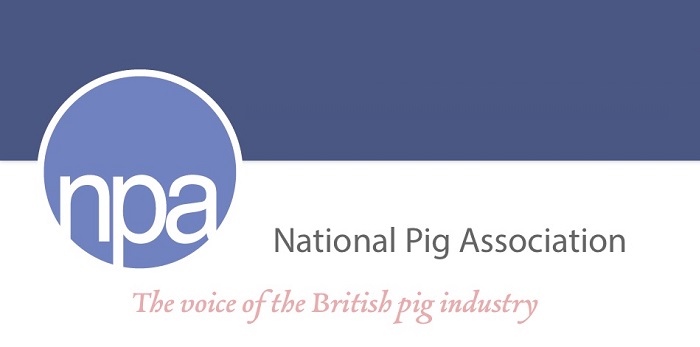The NPA has submitted its response to Defra’s ‘Health and Harmony’ Command Paper on the future of food and farming, calling for a post-Brexit policy framework that champions food production.
The 53-page document, put together by the NPA team following consultation with members, was upbeat in tone outlining how the UK pig sector has the potential to grow, prosper and deliver real public goods, under a post-Brexit agricultural policy that puts food production at its heart.
It highlights the opportunities Brexit brings for the pig sector in the right policy environment, while also outlining the potential pitfalls for the pig industry and consumers if the Government gets it wrong.
You can read the NPA’s full Command Paper response here
 Thanking members for their input, NPA chief executive Zoe Davies said: “We are optimistic about the opportunities that Brexit could bring on both domestic and international markets. We see an opportunity for the Government to establish a policy framework that helps the UK pig industry build on its position as a modern, forward-looking sector producing high quality, safe food produced to the very highest standards for a range of markets.
Thanking members for their input, NPA chief executive Zoe Davies said: “We are optimistic about the opportunities that Brexit could bring on both domestic and international markets. We see an opportunity for the Government to establish a policy framework that helps the UK pig industry build on its position as a modern, forward-looking sector producing high quality, safe food produced to the very highest standards for a range of markets.
“But we are also aware of the risks Brexit brings – and we spell these out, too. At the heart of our response is a call for the Government to put food production at the centre of its post-Brexit agenda. If the right policies are in place – we will do the rest.”
NPA’s key asks:
- A fair approach to reducing direct payments to farmers that is proportionate and equal for all.
- Clarity on the future regulatory system, improvements to the tax system and grants to help pig producers invest to improve business efficiency and deliver other public goods, such as high animal health and welfare and environmental standards.
- Government to encourage early adopters of technology by offering them incentives or grants to trial innovative ideas.
- The need for recognition that we already have world leading animal welfare and where food can be produced in the UK it should be, as we have far more control over how food is produced here and can ensure that the key goals on environment, health and welfare are met.
- Policies to address potential labour shortages, including the need for schemes to encourage new entrants into agriculture, starting with fact-based education about food and farming in schools to encourage UK citizens into agriculture while continuing to allow EU workers to fill permanent roles.
- Continued access to the European market, while ensuring any future EU trade deal must not make it easier for the UK import pork than to export it.
- New trade deals with non-EU countries or trading blocs where fairness and mutuality of standards are maintained. Alternatively, the need for mandatory country of origin labelling on all products, as opposed to method of production labelling, particularly if trade deals are made with countries that have lower standards than ours.
NPA chairman Richard Lister said: “We believe the UK pig sector can prosper outside the EU. There are plenty of markets out there that would readily take more high quality British pork. But future trade deals must be fair and ensure that export growth isn’t achieved at the cost of flooding the UK market with cheaper, lower standard imports that would be illegal to produce here. It would be lose-lose for UK producers and consumers.
“We also believe there are opportunities for the pig sector to further improve on delivering public goods. Our document outlines how government can work with the industry in areas such as pig health, welfare and environmental outputs, by helping to reverse chronic under-investment in the industry over the past decade or so.
“We call for a fair regulatory environment, a supportive approach to public procurement, a better careers pathway from schools and robust measures to protect the nation’s pig health status. Above all we are looking for Government policies that champion an important sector of the economy that is well up for the challenge of adapting to a brave new world outside the EU.”




